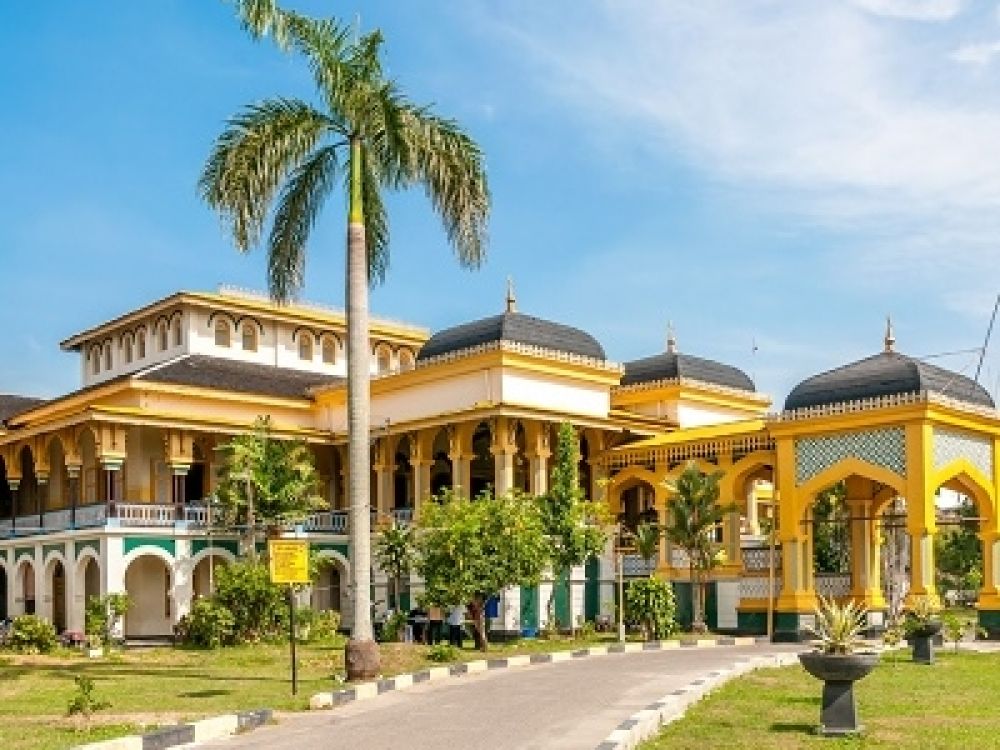

The Maimun Palace, or Istana Maimun, is one of the most iconic landmarks in Medan, the capital city of North Sumatra, Indonesia. This majestic palace stands as a testament to the rich cultural heritage of the region and is a significant tourist attraction in the city. Built in the late 19th century, the palace's history is closely tied to the Sultanate of Deli and is a symbol of the grandeur of that era.
Constructed in 1888 under the orders of Sultan Ma'mun Al Rashid Perkasa Alamyah, the palace showcases a unique blend of Malay, Islamic, Spanish, Indian, and Italian architecture. Spanning over 2,772 square meters with 30 rooms, the striking yellow-colored building soon became an intrigue among travelers, etching the city's name into the global tourist map.
Tourism to the Maimun Palace began to flourish as Indonesia developed its tourism sectors post-independence, and especially during the latter half of the 20th century. The country's promotion of its cultural and historical sites drew international attention, and Medan became a must-visit destination for those fascinated by royal history and architecture.
Recognizing its touristic and historical value, the Indonesian government took steps to preserve the palace, which remains under the ownership of the Sultanate of Deli. Despite being a heritage site, parts of the Maimun Palace are open to the public, allowing visitors to explore the grand interior and the Sultanate's artifacts, which include royal furnishings, traditional weaponry, and costumes.
In recent years, tourism trends at Maimun Palace have included interactive narrated tours, cultural exhibitions, and visitor participation in traditional ceremonies. Additionally, the palace has embraced modern technology by offering virtual tours and enhancing the visitor experience through augmented reality apps that provide an immersive historical insight into the Sultanate's past.
Travelers are also drawn to the palace's recurring events and celebrations, including weddings and cultural performances, all of which amplify the appeal of this regal attraction. Moreover, tourists can now enjoy nearby attractions in Medan, which have been developed as part of a holistic experience that showcases the city’s food, culture, and vibrant street life.
The Maimun Palace continues to be an essential part of Medan’s identity and is a beacon of tourism in Indonesia. Its historical significance, combined with ongoing efforts to offer immersive and innovative tourist experiences, ensures that the palace remains a cherished destination for years to come.